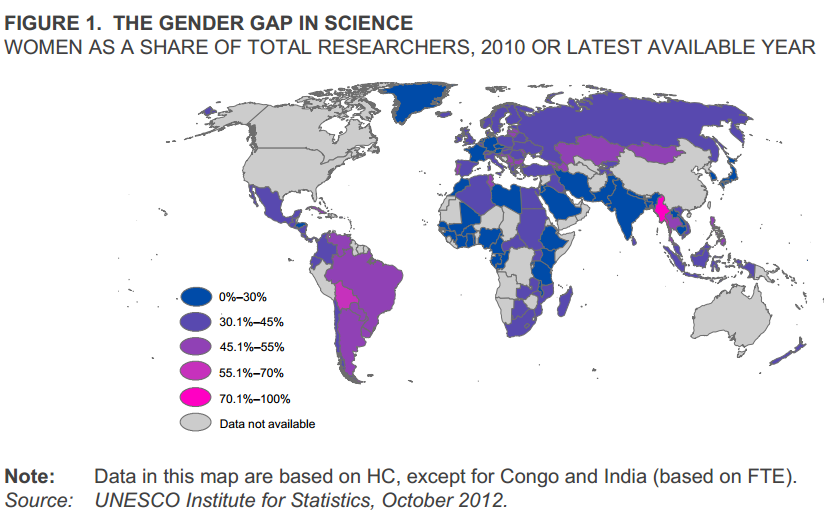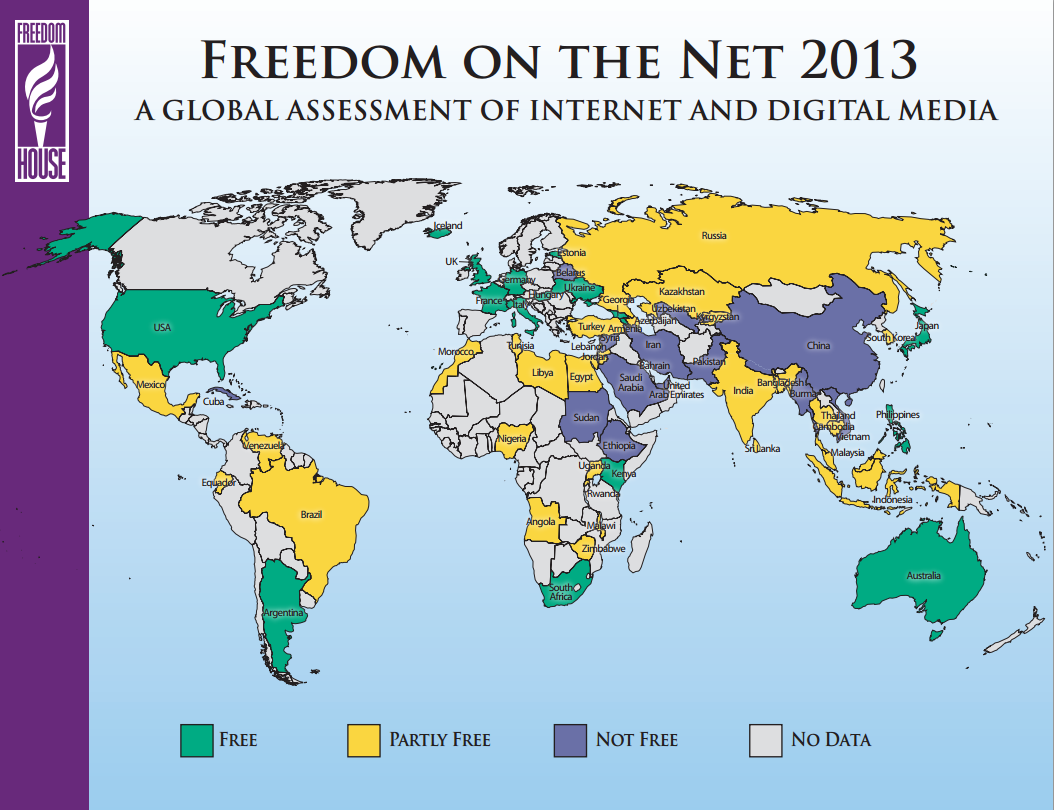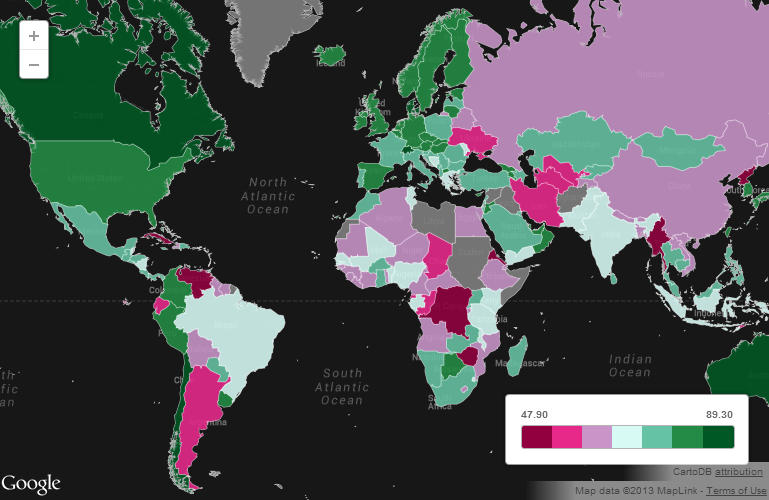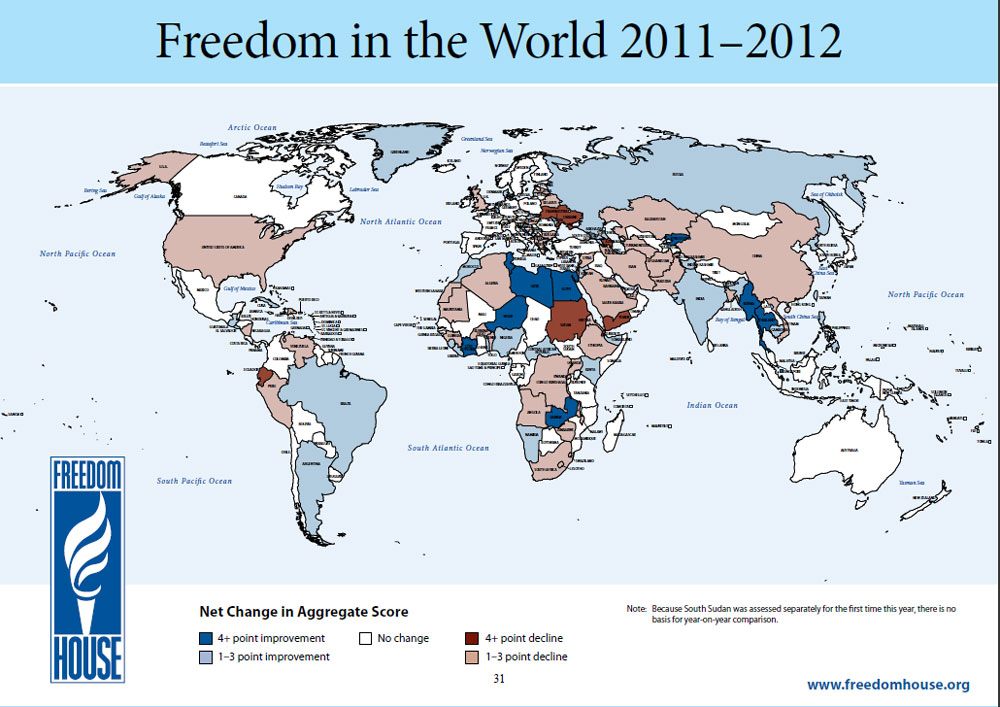The number of women researchers is small compared to that of men globally. Researchers are professionals who are engaged in the creation of new knowledge, technologies, or products.
The map above shows the number of women as a share of total researchers by country. It is interesting to note that countries like Bolivia and Burma, both developing nations, show the highest ratio of female researchers compared to the total in each country. Since the data used here is based on headcounts of people employed in R&D full time and part time, I would take this results with caution considering that the total number of researches in these countries could be very low to begin with, and the results, therefore, not very solid.
In the same manner, the percentage of women researchers for Latin America and the Caribbean as a share of the total is the highest in the world, higher than the number for developed nations (45.2% according to this study) which seems counter-intuitive.
Source: UNESCO Institute of Statistics: Women in Science – The Gender Gap in Science



